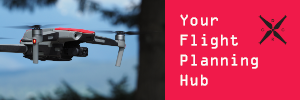I was reading my new issue of AOPA magazine. I read the article, under the heading "Pilot Counsel," titled "Unmanned aircraft systems" by John Yodice who provides legal counsel to AOPA. In the article he reviews the progress of the case of the guy who flew his drone around the campus of the University of Virginia. I am sure everyone here has seen the video. In the end the NTSB decided that a drone is an aircraft and is, therefore, subject to the rules and regulations regarding the operation of aircraft. Now the poor guy who flew the drone is still under indictment for reckless operation of an aircraft.
It wont be long before drone operators will be required to obtain a pilot license. At lease a sport pilot license. We will have to register our drones and get tail numbers and have airworthiness certificates, and all the other BS we have to have when we fly our Piper PA28. In uncontrolled airspace (Class G) you wont have any problems, but if you want some great aerial footage of a city or town or whatever, then you better get ready to hide from the airspace police. Myabe we should come up with a flight plan form that we can file with the FAA before we take our video.
It wont be long before drone operators will be required to obtain a pilot license. At lease a sport pilot license. We will have to register our drones and get tail numbers and have airworthiness certificates, and all the other BS we have to have when we fly our Piper PA28. In uncontrolled airspace (Class G) you wont have any problems, but if you want some great aerial footage of a city or town or whatever, then you better get ready to hide from the airspace police. Myabe we should come up with a flight plan form that we can file with the FAA before we take our video.








